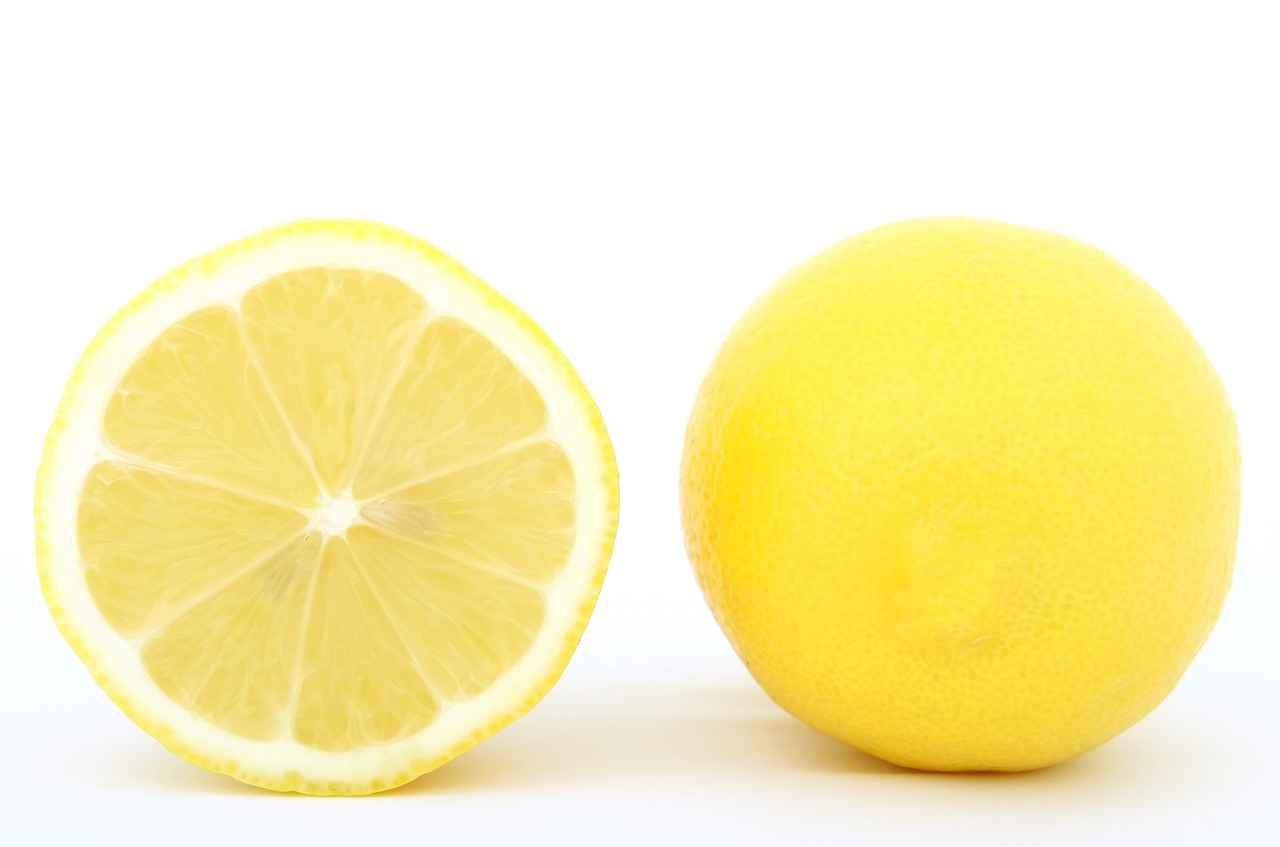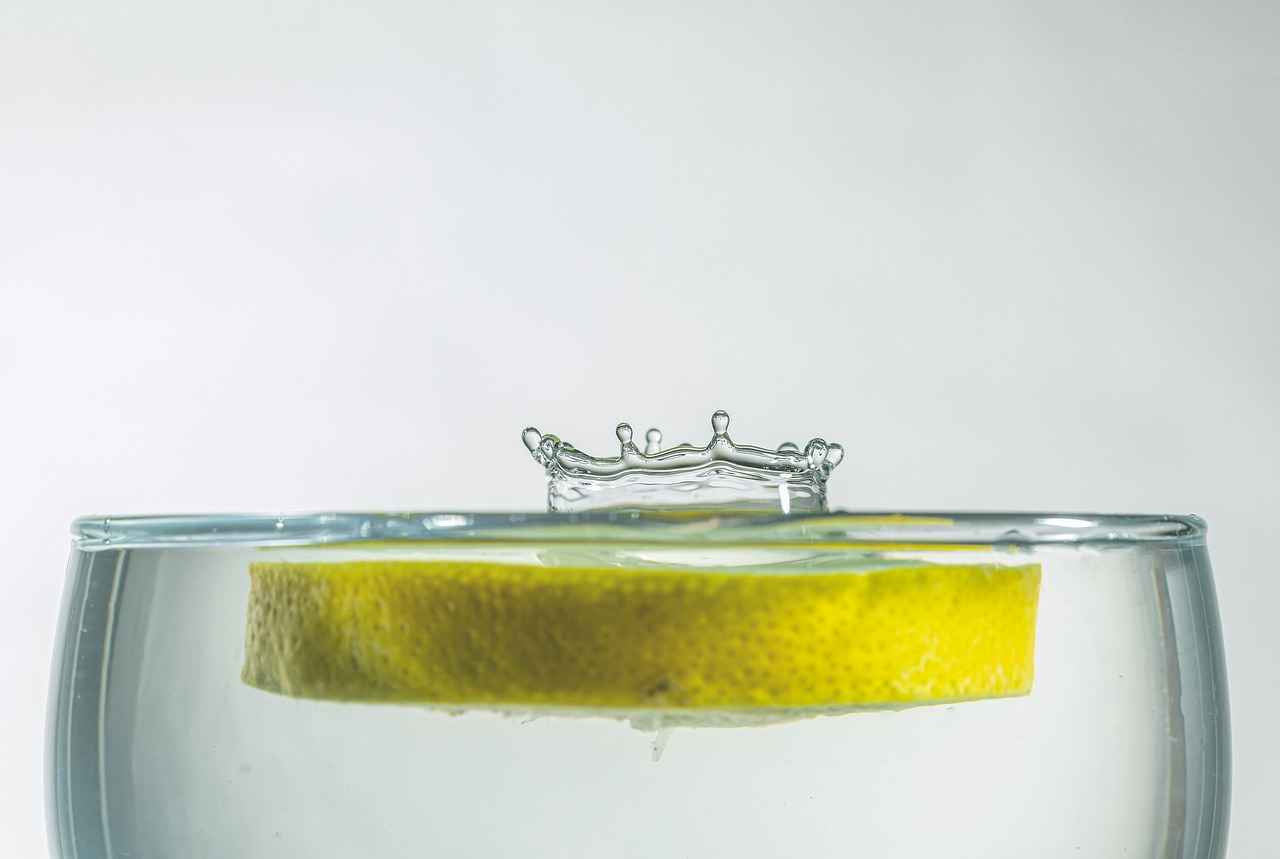This article explores the implications of consuming lemon water during fasting, addressing its benefits, potential drawbacks, and expert insights to help you make informed decisions about your fasting practices.
Understanding Fasting
Fasting is the voluntary abstention from food and drink for a specified period. There are various types of fasting, including intermittent fasting, water fasting, and time-restricted eating. Each method offers unique health benefits, such as improved metabolic health, enhanced fat burning, and even potential longevity benefits. Understanding the principles behind fasting can help you tailor your approach to align with your health goals.
What is Lemon Water?
Lemon water is a simple mixture of fresh lemon juice and water. It is low in calories but rich in vitamins, particularly vitamin C, and antioxidants. This refreshing drink not only enhances hydration but also provides a boost of flavor, making it a popular choice for many health-conscious individuals.
Benefits of Drinking Lemon Water
- Hydration and Electrolyte Balance: Staying hydrated is crucial during fasting. Lemon water can help maintain hydration levels and support electrolyte balance, which is vital for overall health.
- Boosting Metabolism: Some studies suggest that lemon water may enhance metabolic rates, potentially aiding in weight loss efforts during fasting.
- Rich in Antioxidants: The antioxidants in lemon water can help combat oxidative stress, supporting overall health and well-being.
Potential Drawbacks of Lemon Water During Fasting
While lemon water has numerous benefits, there are also some potential drawbacks to consider:
- Acidity and Stomach Issues: The acidity of lemon juice can lead to stomach upset for some individuals, particularly those with sensitive stomachs or acid reflux.
- Impact on Insulin Levels: There are concerns that lemon water might affect insulin sensitivity. Some research indicates that even small amounts of sugar can impact fasting insulin levels.
When to Drink Lemon Water While Fasting
Timing can be crucial when incorporating lemon water into your fasting regimen. Many experts recommend consuming lemon water during the fasting window to maximize its benefits without breaking your fast. It can be particularly refreshing in the morning to kickstart hydration.
Expert Opinions on Lemon Water and Fasting
Nutritionists and health experts have varying opinions on this topic. Some advocate for lemon water as a beneficial addition to fasting, while others caution against its acidity and potential effects on insulin. Consulting with a healthcare professional can provide personalized insights tailored to your health needs.
How to Prepare Lemon Water for Fasting
Making lemon water is simple, but preparation matters. Here are some tips:
- Use fresh lemons for the best flavor and nutritional value.
- Mix the juice of half a lemon with a glass of water, adjusting to your taste.
- Consider adding a pinch of sea salt to enhance electrolyte balance.
Alternatives to Lemon Water During Fasting
If lemon water isn’t suitable for you, there are several alternatives to consider during fasting periods:
- Herbal Tea: Naturally caffeine-free and hydrating.
- Coconut Water: Offers natural electrolytes.
- Plain Water: Always a safe and hydrating choice.
Ultimately, whether or not to include lemon water in your fasting routine is a personal decision. Assess your body’s response and consult with experts to create a fasting plan that works best for you.

Understanding Fasting
Fasting is a practice that has been embraced by various cultures and religions throughout history. It involves the voluntary abstention from food and drink for a specified period. This practice can range from intermittent fasting, where individuals cycle between periods of eating and fasting, to prolonged fasting, which may last several days. Understanding the different types of fasting is essential for anyone looking to explore its health benefits.
There are several popular types of fasting, each with its own unique approach and potential advantages:
- Intermittent Fasting: This method alternates between eating and fasting periods. Common patterns include the 16/8 method, where one fasts for 16 hours and eats within an 8-hour window, and the 5:2 diet, which involves eating normally for five days and restricting calorie intake for two days.
- Water Fasting: This type involves consuming only water for a set duration. It is often used for detoxification and can lead to rapid weight loss.
- Religious Fasting: Many religions incorporate fasting as a spiritual practice, such as during Ramadan in Islam or Lent in Christianity. These fasts often have specific guidelines regarding what can be consumed.
- Alternate-Day Fasting: In this approach, individuals alternate days of normal eating with days of fasting or very low-calorie consumption.
The health benefits of fasting are increasingly supported by scientific research. Some of the notable benefits include:
- Weight Loss: Fasting can help reduce calorie intake and increase metabolism, leading to weight loss.
- Improved Insulin Sensitivity: Fasting has been shown to lower insulin levels and improve insulin sensitivity, which is beneficial for metabolic health.
- Cellular Repair Processes: Fasting triggers autophagy, a process where cells remove damaged components, which may contribute to longevity and disease prevention.
- Heart Health: Some studies suggest that fasting can improve various risk factors for heart disease, including blood pressure, cholesterol levels, and inflammatory markers.
While fasting offers numerous health benefits, it is essential to approach it cautiously. Individuals with certain health conditions, such as diabetes or eating disorders, should consult a healthcare professional before starting any fasting regimen. Additionally, staying hydrated and listening to your body during fasting periods are crucial for maintaining overall health.
In summary, understanding fasting involves recognizing its various forms and the potential health benefits that accompany them. By exploring different fasting methods and their effects on the body, individuals can make informed decisions about incorporating fasting into their lifestyle.

What is Lemon Water?
Lemon water is a refreshing beverage made by mixing freshly squeezed lemon juice with water. This simple concoction not only offers a delightful taste but also packs a punch in terms of nutritional value. The nutritional profile of lemon water primarily stems from the lemon juice, which is rich in essential vitamins and minerals.
One of the standout features of lemon water is its high content of vitamin C. This vitamin is crucial for maintaining a healthy immune system, promoting skin health, and aiding in the absorption of iron from plant-based foods. In addition to vitamin C, lemon juice contains a variety of antioxidants, which help combat oxidative stress in the body, potentially reducing the risk of chronic diseases.
Moreover, lemon water is low in calories, making it an excellent choice for those looking to manage their weight. By substituting sugary beverages with lemon water, individuals can enjoy a flavorful drink without the extra calories. This can be particularly beneficial during fasting periods, where maintaining hydration is essential.
| Nutritional Components | Per 100g of Lemon Juice |
|---|---|
| Calories | 29 |
| Vitamin C | 53 mg |
| Potassium | 138 mg |
| Calcium | 26 mg |
In addition to its nutritional benefits, lemon water is often touted for its potential health benefits. Many people claim that drinking lemon water can aid in digestion, as it may help to stimulate the production of digestive juices. This can lead to improved digestion and may help alleviate symptoms of bloating or discomfort after meals.
Furthermore, lemon water is believed to promote hydration, which is vital for overall health, especially during fasting. Staying well-hydrated can help maintain energy levels, support metabolic processes, and improve cognitive function. The addition of lemon not only enhances the flavor but also encourages individuals to drink more water throughout the day.
Another potential benefit of lemon water is its role in supporting detoxification. While the body naturally detoxifies itself, lemon water is thought to support liver function and promote the elimination of toxins. This can be particularly appealing for those who are fasting, as it aligns with the goal of cleansing the body.
However, it’s important to note that while lemon water has many potential benefits, it may not be suitable for everyone. Some individuals may experience acidity or digestive discomfort due to the citric acid in lemons. It’s advisable for those with sensitive stomachs to approach lemon water cautiously.
In summary, lemon water is more than just a refreshing drink; it is a nutrient-rich beverage that offers a variety of health benefits. Its nutritional profile and potential advantages make it a popular choice for those looking to enhance their hydration and overall wellness, especially during fasting periods.

Benefits of Drinking Lemon Water
Lemon water is not just a refreshing beverage; it is a powerhouse of nutrients that can significantly enhance your health. This simple concoction, made by mixing fresh lemon juice with water, is particularly known for its high content of vitamin C and antioxidants. In this section, we will delve deeper into the myriad benefits of drinking lemon water, focusing on its role in hydration, digestive support, and more.
Lemon water is an excellent source of vitamin C, a vital nutrient that plays a crucial role in boosting the immune system. Regular consumption can help ward off illnesses and infections. Additionally, vitamin C is essential for the synthesis of collagen, which is important for maintaining healthy skin and connective tissues.
The antioxidants present in lemon water help combat oxidative stress in the body. By neutralizing free radicals, these antioxidants can reduce the risk of chronic diseases, including heart disease and cancer. Incorporating lemon water into your daily routine can contribute to overall wellness.
Staying hydrated is crucial, especially during fasting periods. Lemon water not only quenches your thirst but also helps maintain electrolyte balance. The potassium content in lemons aids in regulating fluid balance and supports proper muscle function, making it an ideal choice for hydration.
Many individuals find that drinking lemon water can enhance their digestive health. The acidity of lemon juice may help stimulate the production of stomach acid, which is necessary for proper digestion. Furthermore, it can alleviate symptoms of indigestion and bloating, making it a beneficial addition to your diet.
Some studies suggest that lemon water may assist in boosting metabolic rates. The combination of water and lemon can promote feelings of fullness, potentially reducing overall calorie intake. This effect can be particularly advantageous for those looking to manage their weight during fasting.
The vitamin C and antioxidants in lemon water can also promote healthy skin. Regular consumption may help reduce blemishes, improve skin texture, and provide a natural glow. Hydration from lemon water ensures that your skin remains supple and well-hydrated.
Lemon water can help freshen your breath. The citric acid in lemons can kill bacteria in the mouth, reducing bad breath and promoting oral health. However, it is essential to rinse your mouth with plain water afterward to protect tooth enamel from acidity.
While lemon water alone is not a magic weight-loss solution, it can be a helpful tool when combined with a balanced diet and regular exercise. Its hydrating properties can replace higher-calorie beverages, and its potential to enhance metabolism may support weight loss efforts.
In summary, drinking lemon water offers a myriad of health benefits, from hydration and digestive support to skin health and potential weight loss aid. Incorporating this simple yet effective beverage into your daily routine can be a delightful and healthful choice.
Hydration and Electrolyte Balance
Staying hydrated is crucial during fasting, as it not only supports overall health but also enhances the effectiveness of the fasting process. When fasting, the body undergoes various metabolic changes, and maintaining proper hydration and electrolyte balance becomes essential. This section explores how lemon water can be an excellent ally in achieving these goals.
Lemon water, a mixture of fresh lemon juice and water, is not just a refreshing drink; it offers a plethora of benefits that can aid in hydration. The primary component of lemon water is water itself, which is vital for maintaining hydration levels. During fasting, the body can lose fluids through various processes, including sweating and respiration. Therefore, it is imperative to replenish these fluids, and lemon water serves as a delicious way to do so.
Electrolytes are minerals that help regulate various bodily functions, including nerve signaling and muscle contractions. When fasting, the intake of electrolytes can significantly impact energy levels and overall well-being. Lemon water contains small amounts of essential electrolytes such as potassium and magnesium, which can help maintain electrolyte balance during fasting periods. This is particularly beneficial for those who engage in prolonged fasting or physical activity, as it can help prevent symptoms of dehydration, such as fatigue and dizziness.
- Hydration Support: Drinking lemon water helps to ensure that you remain hydrated, which is crucial for optimal metabolic function.
- Electrolyte Replenishment: The presence of electrolytes in lemon water can help counteract the loss of minerals during fasting.
- Refreshing Taste: The addition of lemon provides a flavorful twist, making it easier to consume adequate fluids throughout the day.
Moreover, lemon water can enhance the absorption of nutrients and minerals in the body, which is beneficial when breaking a fast. The vitamin C found in lemons may also support the immune system, helping to fend off illness during fasting periods when the body may be more vulnerable.
It’s important to note that while lemon water can aid in hydration, individuals should listen to their bodies. Some people may experience sensitivity to the acidity of lemon juice, which could lead to digestive discomfort. In such cases, it’s advisable to dilute the lemon juice further or opt for other hydrating beverages that suit individual preferences.
Incorporating lemon water into your fasting routine can be a simple yet effective strategy for maintaining hydration and electrolyte levels. By staying hydrated, you not only support your body’s functions but also enhance your fasting experience, making it more enjoyable and sustainable.
Boosting Metabolism
When it comes to enhancing metabolic rates, many people are curious about the potential benefits of lemon water, especially in the context of fasting. This section explores the scientific basis behind the claim that lemon water may boost metabolism and its implications for those practicing intermittent fasting.
Firstly, it is important to understand that metabolism refers to the biochemical processes that occur within the body to maintain life, including the conversion of food into energy. A higher metabolic rate means that the body is more efficient at burning calories, which can be beneficial for weight management and overall health.
Some studies suggest that lemon water can play a role in enhancing metabolic rates. This is primarily attributed to the presence of vitamin C and antioxidants found in lemons. Vitamin C is known to support the body’s fat-burning processes, and antioxidants help combat oxidative stress, which can negatively impact metabolic function. Additionally, the citric acid in lemon juice may aid in digestion, further supporting metabolic efficiency.
Moreover, lemon water is often consumed as a low-calorie beverage, making it an excellent choice for those who are fasting. By replacing high-calorie drinks with lemon water, individuals may find it easier to maintain a caloric deficit, which is essential for weight loss. The hydration provided by lemon water can also enhance metabolic activity, as proper hydration is crucial for optimal metabolic function.
Furthermore, some research indicates that the act of drinking cold lemon water may temporarily increase metabolic rate as the body works to warm the liquid to body temperature. This thermogenic effect, although modest, can contribute to overall calorie expenditure.
However, while the potential metabolic benefits of lemon water are promising, it is essential to consider individual responses. Some people may experience digestive discomfort due to the acidity of lemon juice, which could hinder their ability to consume it regularly. Therefore, it is advisable for individuals to monitor their body’s reaction and adjust their intake accordingly.
In the context of fasting, incorporating lemon water may offer additional benefits beyond just metabolic enhancement. The refreshing taste can help curb cravings, making it easier to adhere to fasting protocols. Moreover, the electrolytes found in lemon juice can support hydration levels, which is particularly important during extended fasting periods.
In summary, while there is evidence to suggest that lemon water can enhance metabolic rates, individual experiences may vary. For those practicing fasting, lemon water can serve as a beneficial addition, promoting hydration and potentially supporting metabolic processes. As with any dietary change, it is crucial to listen to your body and consult with healthcare professionals if you have any concerns.

Potential Drawbacks of Lemon Water During Fasting
While lemon water is often heralded for its numerous health benefits, it is essential to consider the potential drawbacks, especially when consumed during fasting. This section aims to shed light on the possible issues that may arise from drinking lemon water, focusing on acidity and digestive discomfort.
Lemon juice is known for its high acidity, which can pose problems for some individuals. The pH level of lemon juice is around 2, making it quite acidic. For those with sensitive stomachs or pre-existing gastrointestinal conditions, this acidity can lead to heartburn, acid reflux, or general stomach discomfort.
- Individuals with gastroesophageal reflux disease (GERD) may experience worsened symptoms when consuming acidic beverages.
- People with ulcers or irritable bowel syndrome (IBS) might find that lemon water exacerbates their symptoms.
- Those who are prone to nausea or have a sensitive digestive system should proceed with caution.
Another concern regarding lemon water during fasting is its potential impact on insulin levels. Some studies suggest that even low-calorie beverages can provoke an insulin response, which may interfere with the benefits of fasting. This is particularly relevant for individuals aiming for metabolic health or weight loss.
While lemon water is often praised for its hydrating properties, the acidity can sometimes lead to dehydration in sensitive individuals. This is because the body may react to the acidity by increasing the production of stomach acid, which can lead to a feeling of thirst or discomfort.
Frequent consumption of acidic beverages can also have implications for dental health. The citric acid in lemon water can erode tooth enamel over time, making teeth more susceptible to decay. For those who consume lemon water regularly, it is advisable to rinse the mouth with plain water afterward to mitigate this risk.
Despite these potential drawbacks, many people can enjoy lemon water without significant issues. The key is moderation. Limiting consumption to a few times a week and diluting lemon juice with more water can help reduce acidity levels and minimize any adverse effects.
In conclusion, while lemon water can be a refreshing addition to your fasting routine, it is crucial to be aware of its potential drawbacks. Understanding your body’s responses and consulting with a healthcare professional can help you make informed decisions about incorporating lemon water into your fasting regimen.
Acidity and Stomach Issues
The consumption of lemon water has gained popularity among health enthusiasts, particularly during fasting periods. However, the acidity of lemon juice can lead to stomach upset for some individuals. Understanding who might be more susceptible to these effects is crucial for those considering incorporating lemon water into their fasting routine.
Lemon juice is highly acidic, with a pH level typically around 2.0. This acidity can stimulate the production of gastric acid in the stomach, which may result in discomfort for certain individuals. Those who have acid reflux, gastritis, or other gastrointestinal disorders may experience heightened sensitivity to acidic foods and beverages.
People who have a history of ulcers or those taking medications that irritate the stomach lining should also exercise caution when consuming lemon water. The citric acid in lemon juice can exacerbate these conditions, leading to increased pain or discomfort. It is advisable for such individuals to consult with a healthcare provider before adding lemon water to their diet.
Furthermore, individuals with a sensitive stomach or those prone to digestive issues may find that lemon water can trigger symptoms like bloating or cramping. The acidity can disrupt the stomach’s natural pH balance, leading to discomfort. It is essential for these individuals to monitor their body’s response when consuming lemon water and to consider diluting it with more water to reduce acidity.
Additionally, some people may experience tooth sensitivity due to the acidic nature of lemon juice. Prolonged exposure to acidic substances can erode tooth enamel, increasing the risk of cavities and sensitivity. To mitigate this risk, it is advisable to drink lemon water through a straw and rinse the mouth with plain water afterward.
In summary, while lemon water can offer several benefits during fasting, it is crucial to recognize that its acidity may not be suitable for everyone. Individuals with pre-existing digestive conditions, sensitive stomachs, or dental concerns should approach lemon water with caution. Listening to your body and consulting with a healthcare professional can help ensure that you make informed choices about your fasting practices.
Impact on Insulin Levels
When considering the consumption of lemon water during fasting, one of the most debated topics is its potential impact on insulin levels. Insulin sensitivity is crucial for maintaining healthy blood sugar levels, and any substance that might affect it warrants thorough examination.
Research has shown that fasting can significantly improve insulin sensitivity, which is beneficial for metabolic health. However, the question arises: does adding lemon water to the mix alter this positive effect? Lemon water, primarily composed of water and fresh lemon juice, is low in calories and contains a small amount of carbohydrates. The concern is whether the natural sugars present in lemon juice can trigger an insulin response, especially during a fasting state.
Several studies indicate that the glycemic response to lemon juice is relatively low. The presence of citric acid and polyphenols in lemons may even help to mitigate blood sugar spikes. For instance, a study published in the journal Nutrition Research found that the inclusion of lemon juice in meals can reduce the glycemic index of those meals, potentially leading to better insulin management.
Furthermore, the antioxidant properties of lemon may contribute positively to metabolic processes. Antioxidants play a role in reducing oxidative stress, which is often linked to insulin resistance. By consuming lemon water, one might not only stay hydrated but also support their body’s ability to manage insulin effectively during fasting periods.
However, it is essential to consider individual responses. Some people may experience an increase in hunger or cravings after consuming lemon water, which could lead to breaking the fast prematurely. This psychological aspect can indirectly affect insulin levels by triggering a response to food intake sooner than intended.
Moreover, the timing of when lemon water is consumed during fasting could also play a role. Drinking it at the beginning of a fasting window might help in managing hunger, while consuming it closer to the end could potentially lead to unwanted cravings.
In conclusion, while lemon water is generally considered safe and potentially beneficial during fasting, its impact on insulin sensitivity appears to be minimal for most individuals. Those who are particularly sensitive to changes in insulin levels or who have specific metabolic conditions should consult healthcare professionals for personalized advice.
In summary, lemon water can be a refreshing addition to your fasting routine, but it is crucial to listen to your body and monitor how it affects your hunger and energy levels. By doing so, you can enjoy the benefits of lemon water without compromising your fasting goals.

When to Drink Lemon Water While Fasting
Timing can be crucial when incorporating lemon water into your fasting regimen. Understanding when to consume lemon water can significantly enhance its health benefits and support your fasting goals. This section provides insights into the best times to drink lemon water for optimal results, ensuring you make the most of this refreshing beverage.
One of the most effective times to drink lemon water is first thing in the morning. Upon waking, your body is in a state of dehydration after several hours of sleep. Consuming lemon water at this time not only helps rehydrate you but also kickstarts your metabolism. The vitamin C and antioxidants in lemon water can provide a boost to your immune system, setting a positive tone for the day ahead.
Another ideal time to drink lemon water is before meals. Having a glass of lemon water approximately 30 minutes prior to eating can help prepare your digestive system. The acidity of lemon juice stimulates the production of digestive juices, which can enhance digestion. This practice can also help with appetite control, making you feel fuller and potentially leading to reduced calorie intake during meals.
For those who engage in intermittent fasting, consuming lemon water during the fasting window can be beneficial. It is a low-calorie option that can help curb hunger pangs while keeping you hydrated. However, it’s important to ensure that the lemon water is consumed without added sugars or sweeteners, as these can break your fast. A simple mixture of water and fresh lemon juice is the best choice.
Additionally, drinking lemon water in the afternoon can serve as a refreshing pick-me-up. Many people experience an energy slump during this time, and a glass of lemon water can help invigorate you. The natural sugars present in lemon, along with its aroma, can provide a mental boost, keeping you alert and focused.
Lastly, consider drinking lemon water after workouts. Post-exercise, your body needs to replenish lost fluids and electrolytes. Lemon water not only aids in hydration but also provides a source of potassium, which is essential for muscle recovery. This can be particularly beneficial if you are fasting and need to maintain your energy levels.
In summary, the timing of lemon water consumption can greatly influence its benefits during fasting. By incorporating it into your routine at strategic times—such as in the morning, before meals, during fasting windows, in the afternoon, and after workouts—you can maximize its positive effects on your health and fasting experience. Always listen to your body and adjust your intake based on your individual needs and responses.

Expert Opinions on Lemon Water and Fasting
When it comes to lemon water consumption during fasting, opinions among nutritionists and health experts can vary significantly. This section aims to provide a comprehensive overview of expert insights and recommendations, helping you navigate the complexities of incorporating lemon water into your fasting regimen.
Many health professionals recognize the potential benefits of lemon water, particularly for those who are fasting. Dr. Sarah Johnson, a registered dietitian, emphasizes that “lemon water can be a refreshing and hydrating option that may enhance the fasting experience.” The presence of vitamin C and antioxidants in lemon water can support overall health, making it a favorable choice for many individuals.
On the other hand, some experts express caution regarding the consumption of lemon water during fasting. Dr. Mark Thompson, an endocrinologist, points out that “the acidity of lemon juice may lead to gastrointestinal discomfort for some people, especially if consumed on an empty stomach.” This highlights the importance of listening to your body and monitoring how you feel when drinking lemon water while fasting.
Additionally, there are concerns about the potential impact of lemon water on insulin levels. Research indicates that while lemon water itself is low in calories and sugar, the introduction of any flavor or substance during fasting could theoretically trigger an insulin response. Dr. Emily Chen, a nutrition expert, suggests that “individual responses to lemon water can vary, so it’s essential to observe how your body reacts.” This variability underscores the importance of personal experimentation when determining whether to include lemon water in your fasting routine.
Timing is another crucial aspect that experts emphasize. Consuming lemon water at specific times during your fasting window may enhance its benefits. Many nutritionists recommend drinking it in the morning or just before breaking your fast, as this can aid in digestion and prepare your body for the intake of food.
In summary, expert opinions on lemon water and fasting reflect a balance of potential benefits and drawbacks. While many health professionals advocate for its hydrating qualities and nutritional benefits, others caution against possible digestive issues and insulin responses. Ultimately, the decision to include lemon water in your fasting routine should be based on individual preferences and bodily responses. Consulting with a healthcare provider can also provide personalized guidance tailored to your specific needs.

How to Prepare Lemon Water for Fasting
Preparing lemon water for fasting is not just about mixing lemon juice with water; it’s about understanding the right techniques to maximize its benefits. Here are some essential tips to ensure you’re making the most out of your lemon water during fasting.
- Choose Fresh Lemons: Always opt for fresh, organic lemons. Fresh lemons have a higher concentration of vitamins and antioxidants compared to bottled lemon juice, which may contain preservatives.
- Proper Dilution: The key to making effective lemon water is the right dilution. Use the juice of half a lemon in about 8-12 ounces of water. This balance helps maintain hydration while providing essential nutrients.
- Temperature Matters: Consider the temperature of the water. While some prefer cold lemon water, using warm or room temperature water can aid digestion and enhance the detoxifying effects of lemon.
- Timing is Key: For optimal benefits, drink lemon water first thing in the morning. This can jumpstart your metabolism and prepare your digestive system for the day ahead.
- Add a Pinch of Salt: If you’re fasting for an extended period, adding a pinch of Himalayan salt can help replenish electrolytes, making your lemon water even more beneficial.
- Optional Additions: Consider enhancing your lemon water with other ingredients like mint or ginger. These not only add flavor but also provide additional health benefits.
When preparing lemon water, it’s crucial to pay attention to the acidity of the lemon juice. While it offers numerous health benefits, some individuals may experience stomach discomfort. If you find that lemon water causes any issues, try reducing the amount of lemon juice or diluting it further.
Another important aspect is the timing of consumption. Drinking lemon water during your fasting window can help curb hunger and keep you feeling fuller longer. However, be mindful of your body’s response and adjust accordingly.
Incorporating lemon water into your fasting routine can enhance your overall experience. By following these tips, you can ensure that your preparation is effective and beneficial. Whether you’re looking to boost your hydration, support digestion, or simply enjoy a refreshing drink, lemon water can be a valuable addition to your fasting regimen.
Remember, the goal is not just to drink lemon water but to do so in a way that aligns with your fasting objectives. Listen to your body, and adjust your preparation methods as needed to find what works best for you.

Alternatives to Lemon Water During Fasting
When embarking on a fasting journey, many individuals seek beverages that can support their goals while ensuring they remain within the parameters of their fasting regimen. While lemon water is a popular choice, it may not be suitable for everyone due to its acidity or potential digestive issues. Fortunately, there are several alternatives that can provide hydration and additional health benefits during fasting periods.
Herbal teas are an excellent alternative to lemon water. They are naturally caffeine-free and can be enjoyed hot or cold. Options such as peppermint, ginger, and chamomile teas not only offer hydration but also come with their own health benefits. For instance:
- Peppermint tea can aid in digestion and may help relieve headaches.
- Ginger tea is known for its anti-inflammatory properties and can help soothe an upset stomach.
- Chamomile tea is often used for its calming effects, which may enhance relaxation during fasting.
Coconut water is another refreshing alternative that provides essential electrolytes. It is low in calories and contains potassium, which is vital for maintaining hydration and electrolyte balance. However, it does contain some natural sugars, so moderation is key.
If you enjoy flavored beverages, consider infused water. You can create your own refreshing drinks by adding slices of fruits such as cucumber, berries, or mint leaves to water. This not only enhances the flavor but also provides additional vitamins and antioxidants without the acidity of lemon juice.
Bone broth is a nutrient-dense option for those who are fasting. It is rich in collagen, amino acids, and minerals, making it a nourishing choice that can help keep you satiated. Many people find that drinking bone broth during fasting can help curb hunger pangs and provide warmth and comfort.
For those who enjoy a tangy flavor, apple cider vinegar diluted in water can be a beneficial option. It is believed to help with digestion and may assist in regulating blood sugar levels. However, it’s essential to dilute it properly to avoid any potential irritation to the stomach.
Green tea is a popular choice among those who fast, as it contains antioxidants and has been linked to various health benefits, including improved metabolism. It also provides a gentle caffeine boost, which can enhance focus and energy levels without the jitters associated with coffee.
In conclusion, while lemon water is a favored beverage for many during fasting, it is not the only option available. By exploring alternatives such as herbal teas, coconut water, infused water, bone broth, apple cider vinegar, and green tea, individuals can find suitable drinks that align with their fasting goals. Each of these alternatives offers unique benefits, allowing for a more enjoyable and fulfilling fasting experience.
Frequently Asked Questions
- Can I drink lemon water while fasting?
Absolutely! Lemon water can be a refreshing choice during fasting. It’s low in calories and can help keep you hydrated. Just remember, moderation is key!
- Does lemon water break my fast?
Generally, lemon water is considered safe during fasting as it has minimal calories. However, if you’re doing a strict fast, even a small amount of lemon juice might be seen as breaking it.
- What are the benefits of lemon water during fasting?
Lemon water is packed with vitamin C and antioxidants. It helps with hydration, supports digestion, and may even boost your metabolism, making it a great addition to your fasting routine.
- Are there any downsides to drinking lemon water while fasting?
Yes, for some people, the acidity in lemon juice can cause stomach discomfort. If you have a sensitive stomach, you might want to limit your intake or dilute it more.
- When is the best time to drink lemon water during my fast?
Timing can be crucial! Many people find it beneficial to drink lemon water in the morning to kickstart their metabolism or before meals to aid digestion.
- What are some alternatives to lemon water during fasting?
If lemon water isn’t your thing, you can try herbal teas, plain water, or even infused water with other fruits like cucumber or mint for a refreshing twist!














